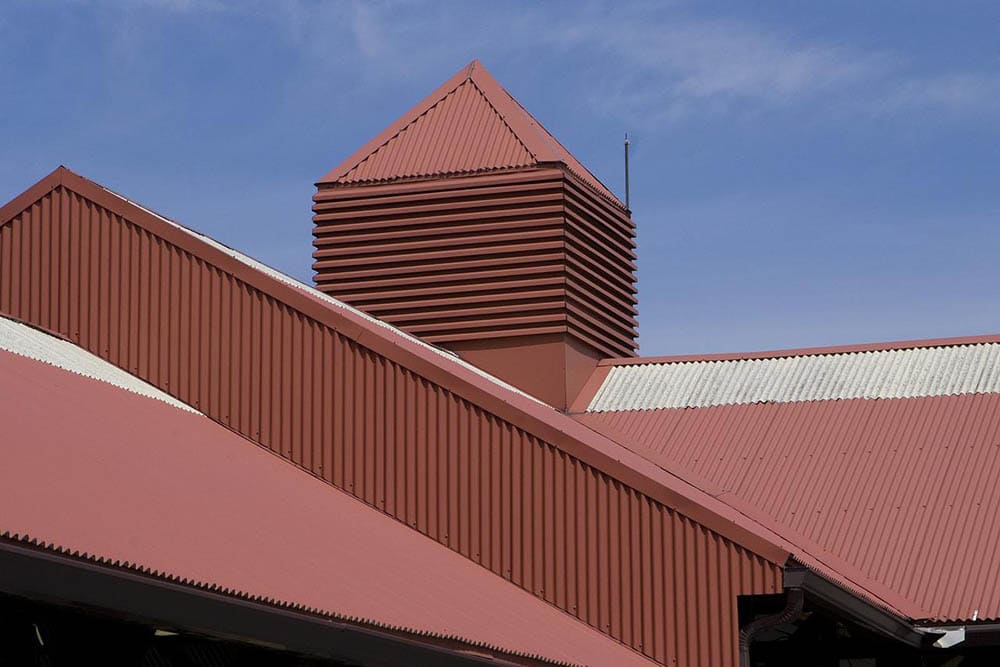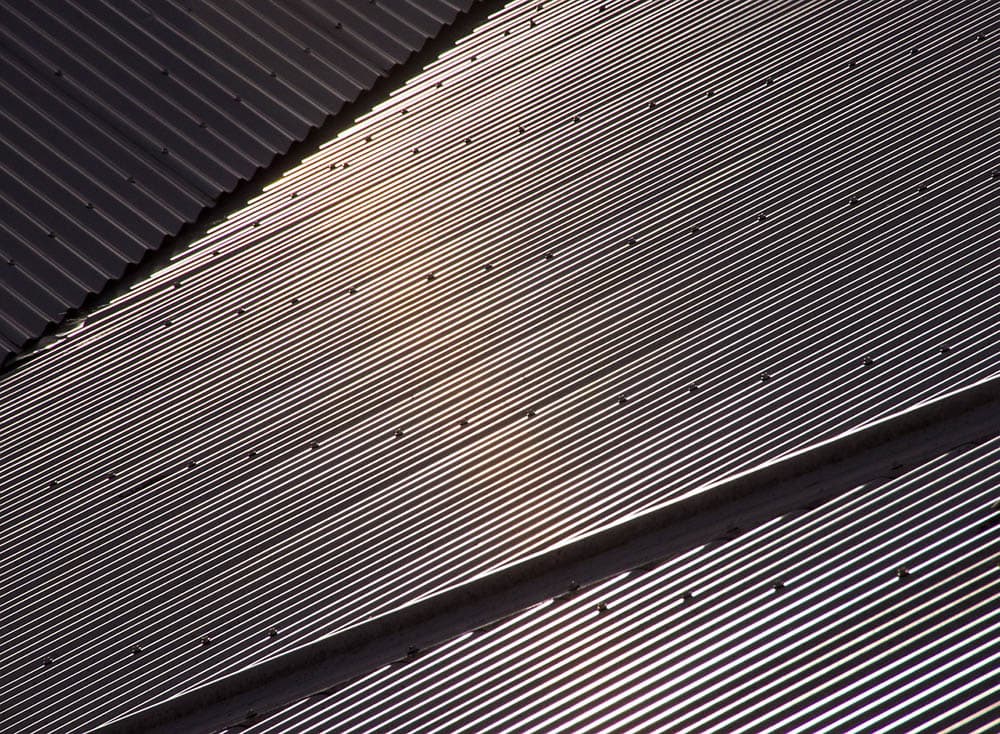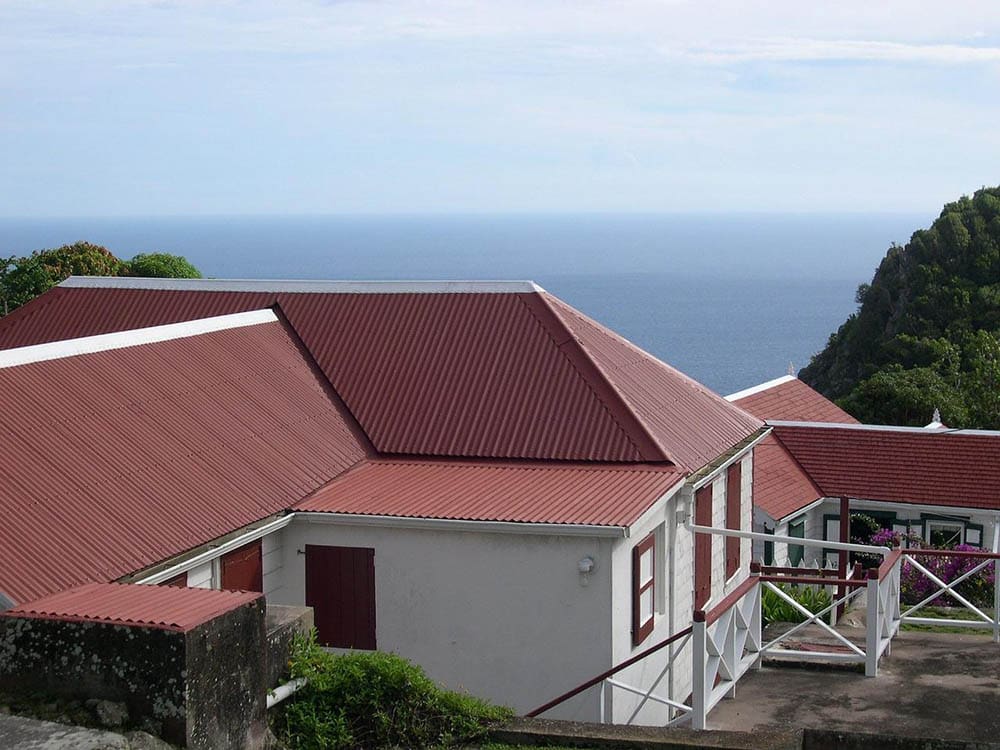How Long Does a Metal Roof Last? Pros, Cons & Tips
-
Codee Chessher
- Last updated:

Metal roofs are one of the top premium roof options available, with some of the best durability among all roofing systems. A properly installed metal roof can last as long as 40–70 years, and copper roofs have been known to last as long as 100 years.
Compared to shingle roofs that only last an average of 15–30 years, this is quite impressive. Metal roofs have a more modern aesthetic that also makes them attractive, but their durability is their primary allure.
In this article, we’ll be detailing what affects metal roof longevity, the pros and cons of metal roofs, and how you can keep your metal roof in great shape.
Factors That Affect Metal Roof Longevity
Metal roofs can last a long time, but there are several factors that influence how long your roof will last. Let’s check out a few things to watch out for when it comes to your roof.
- If the gutters are kept clean. Neglecting your gutters can make water and debris pool, which corrodes your metal roof. Consistent gutter neglect can significantly cut your metal roof’s lifespan.
- Your local climate. Metal roofs do best in mild climates with average or below-average precipitation. The heavier the rainfall, snowfall, or hail your area gets, the more wear and tear on your roof.
- If the roof was properly installed. Poorly installed metal roofs are more susceptible to leaks, cracks, and other forms of damage. Hiring a reputable contractor to do the job will eliminate this issue.

Metal Roof Longevity Tips
Metal roofs don’t usually take a lot of maintenance, which is one of their top selling points. However, they do require some minimal upkeep to keep them in tip-top shape. Let’s check out what that entails and how you can keep your metal roof in great shape for decades to come.
- Keep your gutters clean. As we learned above, pooled water and debris are bad for your roof.
- Keep your trees trimmed away from your roof. Branches and other debris can fall off the trees onto your roof, which is bad over the long term. If your area doesn’t get enough rain to wash all this away, you can take a long-handled soft brush to clear it off.
- Try to avoid walking on the roof if possible. While most metal roofs can withstand some walking around, it places strain on the underlying structure. Regular walking on the roof can reduce its effective lifespan.
- Don’t spray paint metal roofs. Ask the contractor who installed your roof what kind of finishing options they recommend for the roof, as most spray paints aren’t good for your typical metal roof.

Metal Roof Pros and Cons
Metal Roof Pros
Metal roofs are quite expensive, so it’s only fair that they offer some pretty hefty benefits to your average homeowner.
- Longevity. Most traditional roofing systems only last between 10–25 years, while metal roofs typically last 40–70 years.
- Durability. In adverse conditions like high-speed winds, metal roofs are more resilient and can withstand hurricane-force wind gusts.
- Safety. Metal roofs aren’t flammable like some other roof types, so they can’t burst into flames.
- Energy Efficiency. Unlike other roofing systems that absorb heat from sunlight and UV radiation, metal roofs reflect heat and energy. This saves you money on heating and cooling costs.
Metal Roof Cons
Despite their many benefits, metal roofs have a few drawbacks. These are well worth considering so you can make a well-rounded and educated buying decision.
- Metal roofs may cost several times as much as a traditional roof, so it’s important to consider if you’ll be living in the home long enough to make it worth it.
- They’re loud. Unlike other roofs, metal roofs can be terribly noisy, especially in heavy rain or storms. Rain and debris alike seem much louder than they would from a house with a normal roof.
- Material type. Some metals are more susceptible to corrosion that occurs from pooling water, while thinner gauge metals are more prone to denting.
- Poor installation. As with any roof, poor installation means your roof will be more likely to leak and suffer problems down the road.
Conclusion
Metal roofs might be a little expensive up front, but it’s rather appealing to just put one metal roof on a house rather than having to put up new shingles every 15–20 years. There are some minor drawbacks, like metal roofs being loud, but overall, it’s well worth the benefits.
Featured Image Credit: Bev_E, Pixabay
Contents

